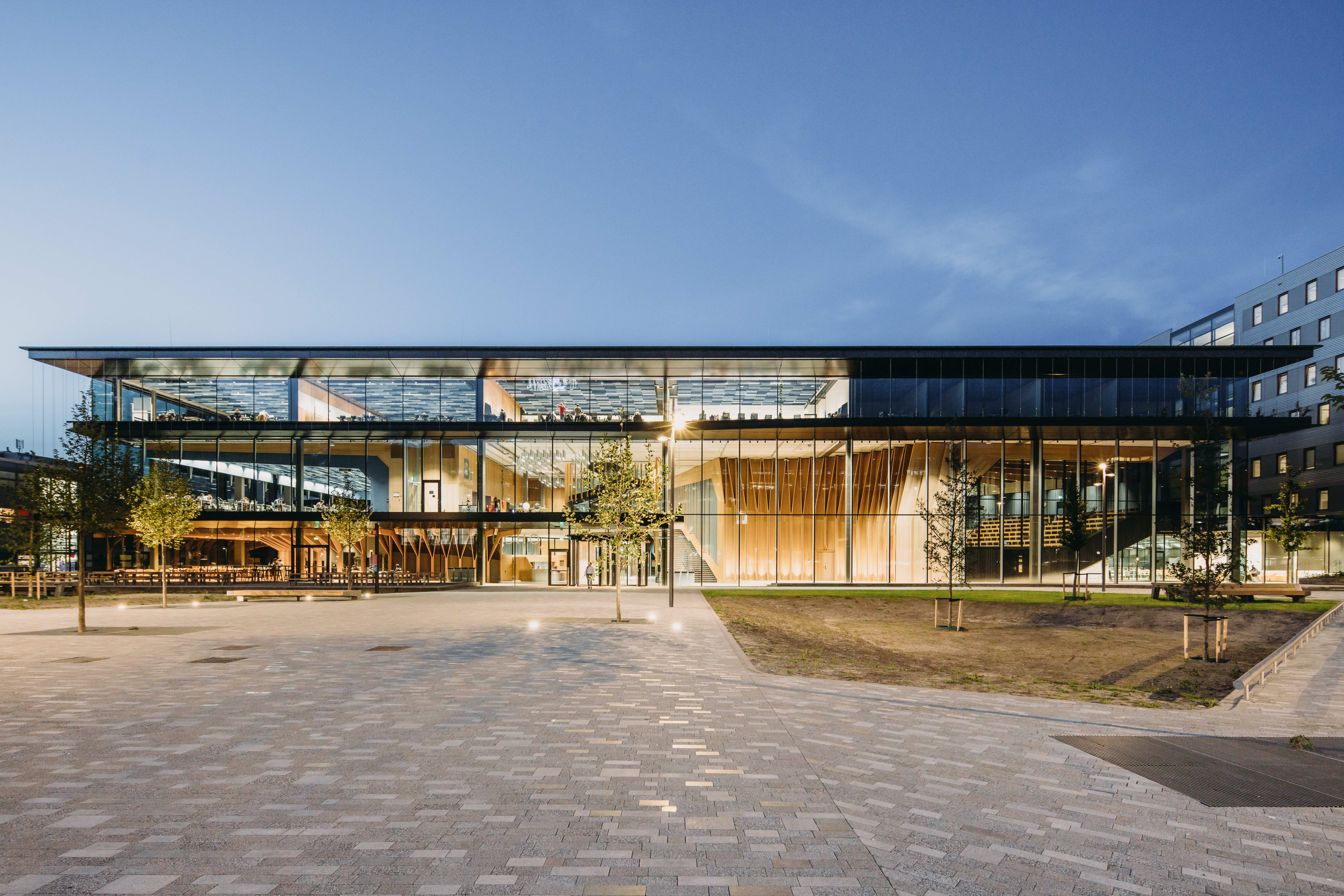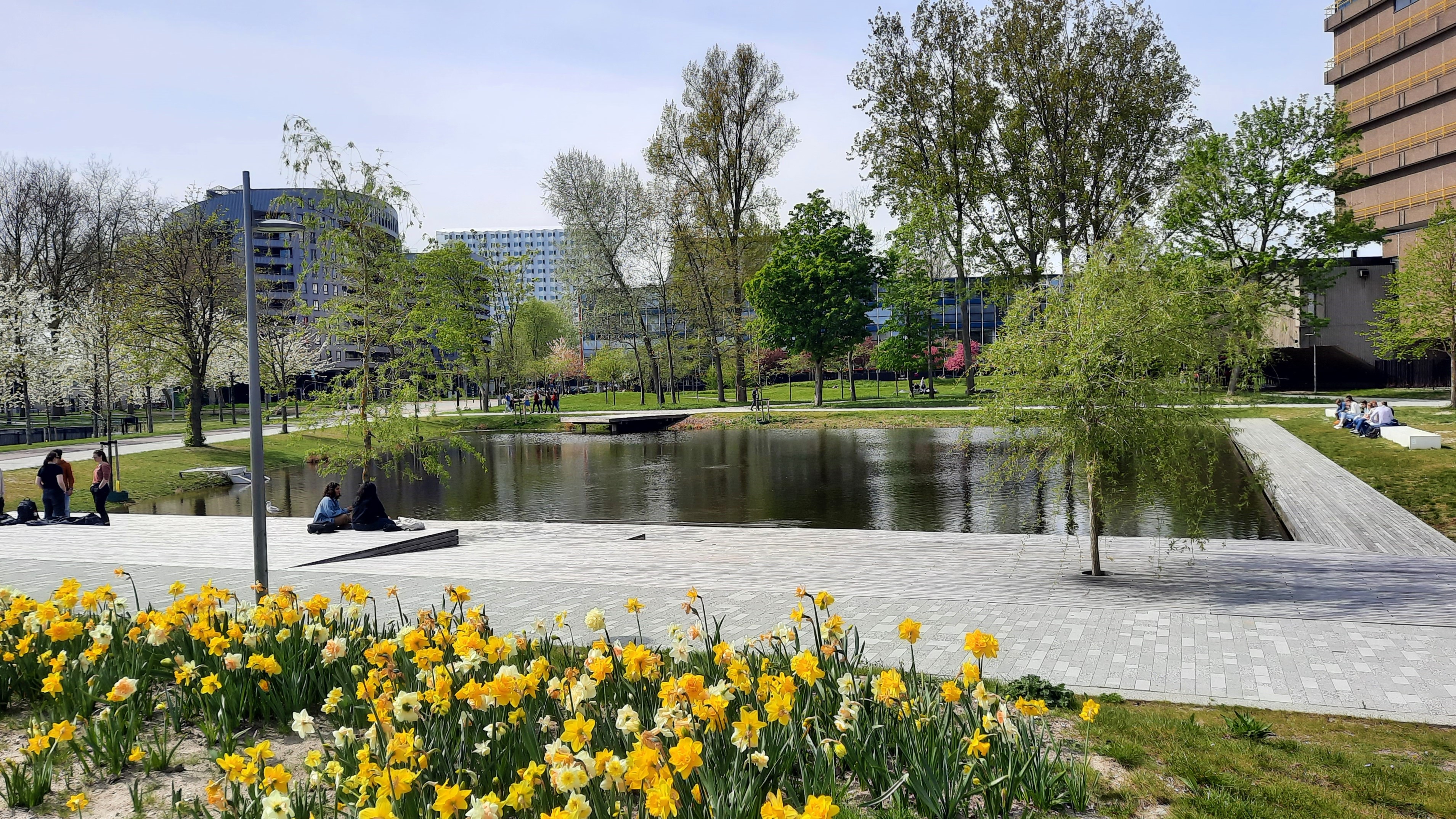A 100 million euro investment to make TU Delft Campus more sustainable
TU Delft is going to invest substantially in making its campus more sustainable. TU Delft is thus putting its previously published Sustainable TU Delft - vision, ambition & action plan into practice. Over the next few years, TU Delft will work towards a CO2-neutral, circular and climate-adaptive campus, with a focus on improving biodiversity and quality of life.
Sustainability Coordinator Andy van den Dobbelsteen and Jaco van Noppen, Director Campus Real Estate & Facility Management, are delighted with this major step. Van Noppen: “This enables us to work step by step towards our sustainability goals; at the same time it will help to scale up innovations off campus.”
A vibrant, sustainable campus
“In 2030, people on campus will study and work in a vibrant, green environment, in buildings that are heated by renewable sources," says Van den Dobbelsteen. “Restaurants will offer healthy and tasty food that is mostly plant-based and partly produced on campus. Procurement will be based entirely on closed cycles.”
Throughout the campus, experiments will be carried out to explore new sustainable techniques and processes. Van Noppen says: “Part of the investment is earmarked for testing innovations. We see the campus as a living lab, a realistic environment to do this. In the high-rise building of the EEMCS faculty for instance, we will test an innovative solar chimney to see if it can be used for sustainable ventilation and the generation of electricity.”
Fit for the future
TU Delft focuses on all aspects that affect climate and environment: buildings, energy system, procurement, waste management, mobility, food, etc. Nature is included too, as work is being done to improve biodiversity and make the campus climate-ready for 2050. Andy van den Dobbelsteen explains: “With everything we are currently developing, we are taking the expected future climate into account: more flooding, longer periods of drought, extreme heat and more severe storms. For example, we want to use part of the campus for the collection of rainwater that we can then put to good use in our buildings.”
Towards a zero-emission energy system
Many of the innovations are related to the energy transition. Van Noppen: “We are using sustainable sources for the heating of our buildings, and perhaps eventually also for homes in the municipality of Delft.” Part of the campus will have a heat network that will allow heat from cooling processes to be stored in the ground and used to heat other facilities. “Our new buildings on Campus South have so much residual heat that we could use it to heat an outdoor swimming pool,” says Van den Dobbelsteen. “So we are looking for creative solutions to make optimal use of all that energy.”
TU Delft Campus as a living lab
Part of the sustainability budget is spent on facilitating innovations. Van den Dobbelsteen: “Governments and other organisations struggle with sustainability; we want to remove obstacles.” TU Delft Campus will serve as a living lab for innovations. “This is where the strengths of our researchers, engineers, designers, and the public and private sectors come together,” says Van Noppen. “This is how we actively contribute to society's sustainability issues. In short: impact for a better society.”
Contact
Inge Snijder, Press Officer, i.snijder@tudelft.nl, +31 (0) 6 1475 9517
Jaco van Noppen, Director CREFM TU Delft
Andy van den Dobbelsteen, Sustainability Coordinator TU Delft
Email: sustainability@tudelft.nl
Contact
Inge Snijder, Press Officer, i.snijder@tudelft.nl, +31 (0) 6 1475 9517
Jaco van Noppen, Director CREFM TU Delft
Andy van den Dobbelsteen, Sustainability Coordinator TU Delft
Email: sustainability@tudelft.nl


